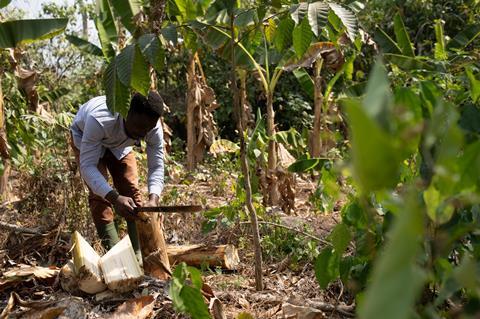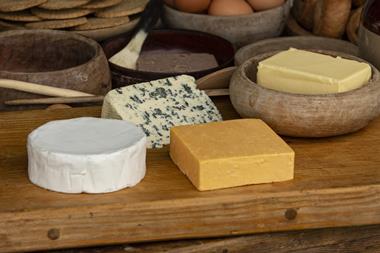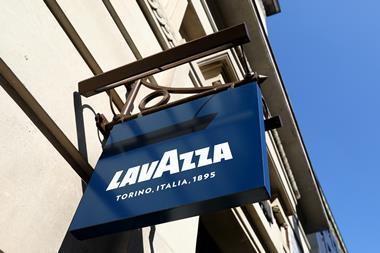
“I used to be able to earn a living from my farm, but my yield has dropped from 700kg down to 300kg last year, and that’s down to climate change,” Vemo Bakayoko, a cocoa farmer from the Yeyasso co-operative in Côte d’Ivoire, told us earlier this year.
Just like farmers in this country, people around the world who grow our favourite products – including chocolate, tea, coffee and bananas – are facing more challenges than ever in this increasingly insecure world. But even with the world in flux, the UK government and businesses still have the power to catalyse change. That was the key message from the government’s new trade strategy published last week.
Shared Impact
The UK’s trade strategy showcased Shared Impact, Fairtrade’s innovative pre-competitive business collaboration model. Through Shared Impact, forward-thinking retailers, brands and traders are pooling their sourcing of cocoa, bananas or coffee to scale investment, improve data visibility, and build resilient supply chains.
This collaborative approach is essential to secure the future of major crops threatened by climate change – such as cocoa – with chocolate prices hitting an all-time high last month.
The government’s endorsement of Fairtrade’s model, following the CMA’s green light last year, is an important step forward.
Responsible business
A review of responsible business conduct is planned as part of the trade strategy. We are calling for the introduction of legislation to make it a legal requirement for UK businesses to prevent human rights abuses and environmental harms in their supply chains, delivering much-needed protection for smallholder farmers and agricultural workers overseas. For this legislation to succeed, it must be developed with farmers and workers.
This legislation can level the playing field, ensure all companies are held accountable for their supply chains, reduce legal uncertainty, and help to prevent environmental and human rights abuses. This is the logical next step for the government to achieve its ambitions. We can be global leaders on responsible business practice.
Better incomes and wages, safer working conditions, and adapting to the complexities of climate change are challenging, thorny issues to address. But we must address them together, now. Time is not on our side.
Vemo, like all farmers, needs to be able to sell product at a fair price. Without this, the future for farmers, and for us, is in peril. “I enjoy my work, and like all farmers I care about my land,” says Vemo. “My world is my land.”
The UK’s trade strategy recognises that businesses can play a meaningful, positive role in building a fairer, more resilient world through their supply chains. Let’s work swiftly to seize this opportunity and do it fairly.
Eleanor Harrison, CEO at the Fairtrade Foundation



















No comments yet